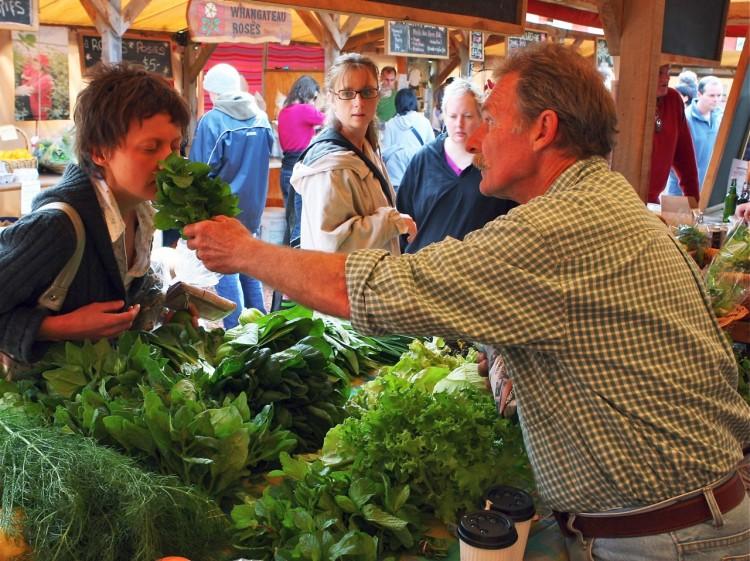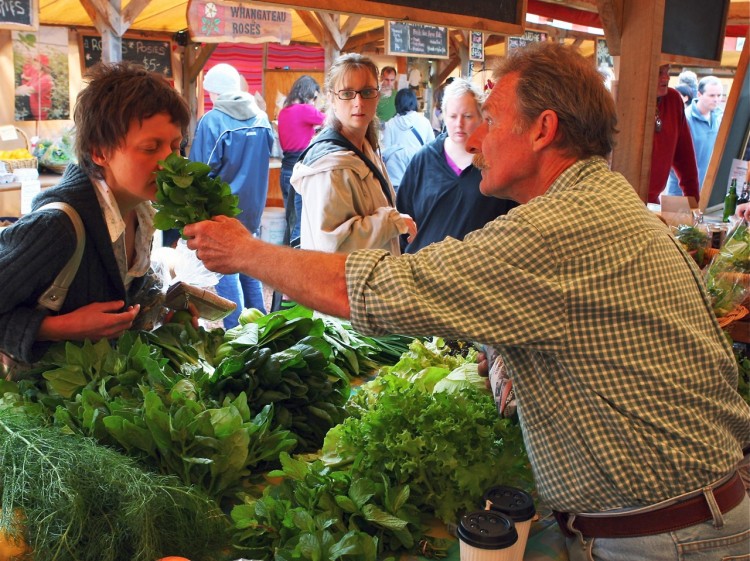Small growers and food producers are apprehensive that provisions outlined in a draft food bill going through Parliament could restrict and even put them out of business
The Food Bill, which has not been updated for 30 years, seeks better public health protection.
An on-line petition says the Food Bill will impact strongly on grass-roots enterprises including community gardens, food co-ops, heritage seed banks and farmers markets. The petition has attracted 30,000 petitioners.
Some small operators believe that the Bill is too complex and would be accompanied by exorbitant compliance costs.
But Minister of Food Safety Kate Wilkinson says opponents are ‘whipping’ up unnecessary fears that small traders will be caught up in costly red tape.
“That is simply not true. This Bill won’t in any way affect people’s right to grow food and to then exchange, sell or trade it,” said the Minister in a press release.
“The current system is prescriptive and based on rules and inspections—which are often costly to food businesses. The new regime will create efficiencies for traders and improve food safety.”
Green Party spokesperson for agriculture Steffan Browning noted that the powers given to Food Safety Officers inspecting properties are ‘disturbing’ and need to be changed.
In the Bill, Food Safety Officers are allowed to search private premises without a warrant, if necessary, and use any force that is reasonable with immunity from civil or criminal liability.
“The police don’t even have that sort of level of immunity,” says Mr Browning.
What Small Producers Say
Rowena Robinson, Tamahere Market Stallholder, said that the Ministry’s own ESR data showed that the incidence of food poisoning in New Zealand had actually been declining.
In a submission to the Select Committee she said that education had significantly reduced food poisoning, especially camphylobacter.
“Onerous financial or other burdens will tend to drive them (stallholders) either away or to operate ”under the counter,” said Ms Robinson.
A common sense approach is needed, she says. “The most effective thing is getting more and more people through those hygiene courses.”
The Bill says that food operations will be regulated relative to the degree of risk posed with high-end businesses such as restaurants and bars having a stricter framework, and businesses such as bakeries, considered to pose a lower food safety risk with fewer requirements.
Food handler guidance information only will be provided for the lower risk end such as sausage sizzles fundraisers and small-scale farmgate sellers.
Biddy Fraser-Davies from Eketahuna’s Cwmglyn Farmhouse Cheese says that huge risk management plans are not required for lifestyle block people who have a few animals and are making cheese for farmers’ markets. Ms Fraser-Davies who has three cows put in a submission to the Food Bill.
She asked for an exemption for small operations—five or less lactating animals deemed healthy by the regulatory authorities—from NZFSA’s expensive auditing and verification checks.
The bill makes no allowance for very small operations unable to afford the enormous compliance costs geared to large dairy farms and commercial cheesemaking firms, she says.
After appearing on Country Calendar, Ms Fraser-Davies was “pinged” by the NZFSA for not complying with the proper regulations.
Investigating officials were sent to audit her small operation, a visit the 69 year old cheesemaker called “intimidating.”
Her compliance costs suddenly jumped from the $100 year licence from the Tararua District Council Environmental Health Office to $5,500.
“It seems to me that everything is designed to make it so difficult to comply that small operators like me will find it too hard and either get closed down ... or just give up,” she said in her submission.
Other cheesemakers have folded under the weight of excessive costs said Ms Fraser-Davies but “I am refusing to be driven to give up ... .”
Kevin Hayes, small mixed vegetable and livestock farmer from Nelson says the bottom line is cost.
“If you are only running a small business and you have only got a turnover of a few thousand (dollars) a year and your compliance costs are a few thousand a year, you don’t have a business.”
Kevin, who sells his produce at the Nelson Farmers’ Market, says he will be better off under the proposed regulations.
“I will register with some agency ... they will send me a bunch of notes, and all I have got to do will probably sign a piece of paper to say I have read the notes and then I am done.”
But his trade with Nelson supermarket First Choice would be affected.
“Under the new regulations because I am not selling my produce face to face with my customer, it’s going via a third party. ... I won’t be able to do that without becoming a registered food business so that part of my business will stop.
“Right now I am putting about 30 cucumbers ... into Fresh Choice because that is basically the surplus that I have got over and above what I can sell myself. It is only worth $30 a week to me. Really not worth going through a lot of compliance costs for.”
Green Party Says Small Producers Should be Encouraged
Steffan Browning says he will see what his party could do in terms of amendments to the bill or the reopening of submissions.
“What I would be aiming to do is to have the threshold set relative to the type of production.”
Some levels of activity such a jam making should not need regulating, says Mr Browning.
“Obviously dairy is quite different from growing carrots in terms of risk and food safety ... we should be trying to encourage more small growers and producers of almost any form just for food self-reliance for the country,” he said.
“I think they are being a little bit over-reactive and drilling down to where the risk is actually not that high and that’s been shown with the facts on food borne illness in 2010-that the bulk of that is coming from cafes and restaurants ... and caterers … .”
The new act will ultimately replace the Food Act 1981, Food Hygiene Regulations 1974 and the Food (Safety) Regulations 2002.
Other Provisions Under the Food Bill
A chief executive with wide ranging functions, including implementing, monitoring and auditing risk-based measures for the safety and suitability of food, will be appointed.
The chief executive is authorised to exempt small scale businesses from food control plan or national programme regulations on case by case basis.
Food imports required to meet the same standards under the Act as New Zealand produce. Importers will have to be registered in New Zealand and be able to trace imports back to their source.
The Green Party would like this to lead to mandatory country of origin labelling, as in other countries.
The Bill is due to be debated again in the next Parliament and is yet to go through its second and third reading stages.





